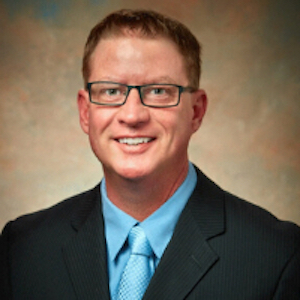NWI Forward: COVID-19 Questions with Richard Shields

As the COVID-19 global health (and economic) crisis continues to wreak havoc on Northwest Indiana, business executives and community leaders alike are stepping up to help us adjust to a vastly changed landscape.
In addition to online community conversations and educational workshops, our organizations reached out to a group of Northwest Indiana leaders that represent a wide variety of industries and roles. From shifting how their entire team does business to leading county-wide emergency responses, they are showing us a way forward.
NWI Forward is a collaborative effort between the Society of Innovators and Leadership Institute at Purdue Northwest.
COVID-19 Questions with Richard Shields
Rich Shields is Director of Marketing and Business Development for Chester Inc. Originally established by Orville Redenbacher and Charles Bowman in 1947, Chester Inc. is northern Indiana’s exclusive Architectural & Construction, Information Technologies and Agricultural Systems firm.
How has this crisis been similar to events like 9/11 or the 2008 recession and how is it different?
I think from an economic standpoint, there’s some initial similarities. We don’t know totally what the economic impact is going to be.
In what ways has this pandemic affected your business?
The IT division of Chester Inc has been very steady, as we’re extending services to the most essential businesses to assist with their remote workforce, and make sure businesses are continuing to run securely.
One of our biggest concerns is that there are a lot of predators out there and there’s a lot of scams going on. That’s probably going to continue over the next few months. I think education is very important while working remotely. The avoidance of phishing scams, and opening unauthorized attachments are the leading scamming culprits’ businesses need to be aware.
What have been your COVID-19 success stories?
One success we had was a veterinary clinic, he was convinced that he was going to have to close his doors for a while. So we got him on Microsoft Teams and were able to set up a portal and enable him to be able to diagnose an animal virtually. That’s been really successful, because he didn’t have to stop seeing his patients and seemingly will be a sustainable trend for virtual pet care moving forward.
What are some longer term changes you may need to make?
I think first and foremost is a dedicated contingency plan that raises the uncertain, unknown working conditions that are potentially catastrophic in nature. And educating even our own workforce on what to do and how to properly address situations.
What additional advice can you share?
I think we continue to adhere to executive orders by our governor at the moment, and really hunker down, stay the course, washing hands, sanitizing, masking and gloving. Particularly in those high congested areas, supermarkets, convenience stores and hospitals.